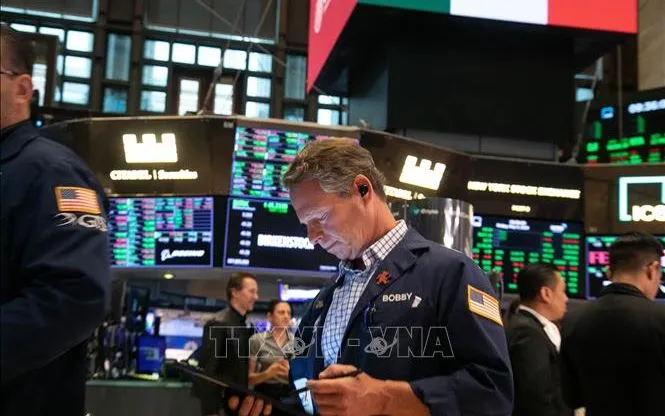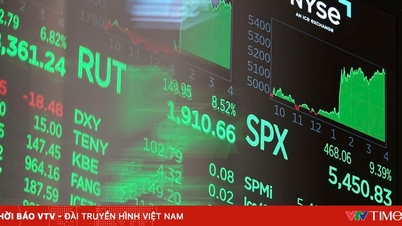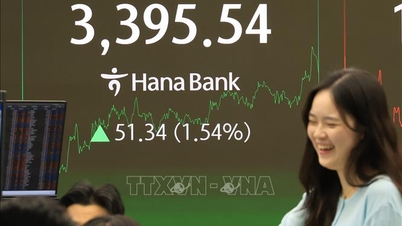
Traders at the New York Stock Exchange, USA. Photo: THX/TTXVN
Americans are investing more in stocks than ever before. While the market rally may be swelling their accounts, they are more vulnerable than ever to market volatility.
According to data from the US Federal Reserve (Fed), direct and indirect stock holdings, including in mutual funds or pension plans, accounted for a record high of 45% of households' financial assets in the second quarter of 2025.
This record level of stock ownership raises alarm bells about whether the market's ups and downs could impact Americans' personal finances, especially in an economy with an increasingly fragile labor market and persistent inflation.
Such high stock holdings are the result of a number of factors, including record high stock prices, which have boosted the value of stock holdings, the growing number of Americans directly participating in the stock market, and retirement plans like stock market investing, which have grown in popularity in recent decades.
The record highs in stocks are generally encouraging, allowing many people to benefit from the profits of American companies, especially long-term investors, but not all are positive. According to Jeffrey Roach, chief economist at LPL Financial, many people now own and invest a lot of money in stocks, so the rise or fall of the stock market has a much larger impact on the economy than it did just a decade ago.
It’s worth noting that US stock ownership has surpassed levels seen in the late 1990s, just before the dot-com bubble burst, even as the stock market continues to grow, fueled by AI, according to John Higgins, a market economist at consultancy Capital Economics.
Higgins expects the S&P 500 to continue to rise this year and next, but the current heavy weighting in stocks is a sign to watch closely. The index has risen 33% since bottoming on April 8 and has set 28 records this year.
History shows that when equity ownership reaches record highs, the risk of a downturn and the likelihood of subpar returns increases, said Rob Anderson, strategist at Ned Davis Research. Investors should not expect the same returns seen over the past decade to repeat themselves. Over the next 10 years, returns are likely to decline.
As the S&P 500 hovers near record highs, concerns are growing that a “K-shaped economy” is emerging, with the richest Americans getting richer while the poorest Americans continue to struggle or get poorer. This is partly because the job market, the main source of income for most Americans, is stagnant, while the stock market, where the wealthy typically make their money, is soaring.
Source: https://vtv.vn/nguoi-my-nam-giu-tai-san-chung-khoan-nhieu-ky-luc-100250929155728147.htm






































































































Comment (0)